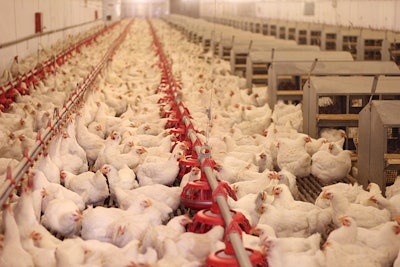
A new report from the Humane League called out several major foodservice chains, including McDonald’s, Subway, Denny’s and more, for not yet committing to transition to cage-free eggs.
More than 100 foodservice chains have agreed to source only cage-free egg and egg products, including KFC, Burger King, Dunkin’, Krispy Kreme, Unilever, Nestlé, Aldi, InterContinental Hotels, Sodexo, Kraft Heinz, Compass Group, Shake Shack, Famous Brands, Costa Coffee, and Barilla, according to the report.
However, not all foodservice restaurants have made a pledge to buy only cage-free eggs globally. The Open Wing Alliance, a global coalition of 80 major animal protection organizations in 63 countries, singled out McDonald’s, Subway, Denny’s, Chili’s, Outback Steakhouse, Panda Express, Telepizza, Five Guys, Darden and The Cheesecake Factory as foodservice brands who haven't committed to a global cage-free transition.
“Even amidst a pandemic, the global restaurant industry brought in an estimated $1.2 trillion in 2020 alone. We’re calling on the world’s top 50 global restaurant chains to improve their standards – for the animals kept in their care and the consumers who want better,” Alexandria Beck, Director of The Open Wing Alliance, said in a press release.
Challenges of the cage-free conversion
The layer industry has gradually been transitioning to cage-free housing throughout the past few years due to consumer and legislative pressure. Several states have passed cage-free hen housing mandates that would require more than 60% of U.S. hens to be housed cage-free by 2025.
However, the U.S. layer industry is unlikely to meet these cage-free commitments, according to the Egg Industry’s annual Top Egg Company survey. Respondents to the survey indicated that only 50.8% of the nation’s hens would be cage-free at the time, given the logistical and financial impact of the conversion.
As of December 6, 2021, data from the U.S. Department of Agriculture (USDA) Cage-Free Shell Egg Report revealed that 94.3 million hens in the U.S. lived in cage-free housing, a 14.2 million increase over 2020.


















